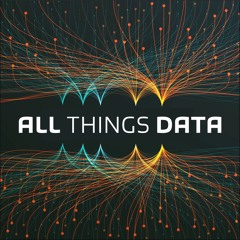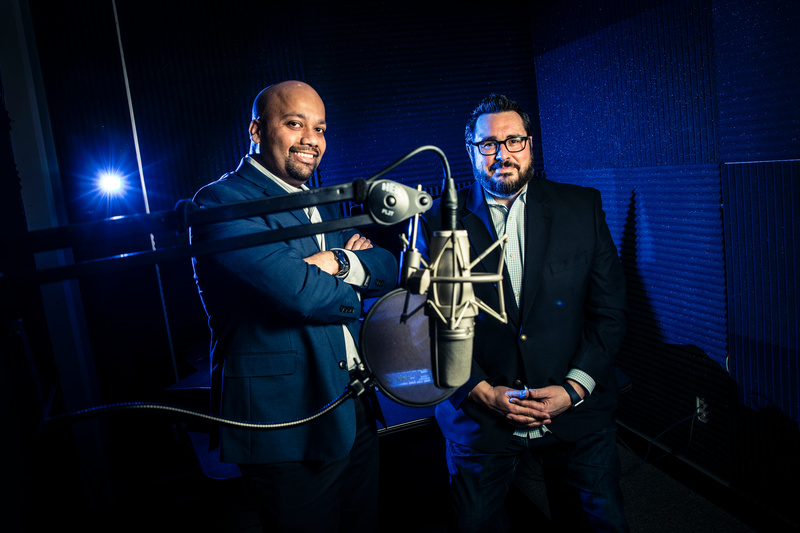
In the ever-evolving technology landscape, data analytics and data strategy continue to play a larger role in economics and business models. Director of the Center for Applied Artificial Intelligence at the University of St. Thomas, Dr. Manjeet Rege, co-hosts the "All Things Data" podcast with adjunct professor and Innovation Fellow Dan Yarmoluk. The podcast provides insight into the significance of data science as it relates to business models, business economics and delivery systems. Through informative conversation with leading data scientists, business model experts, technologists and futurists, Rege and Yarmoluk discuss how to utilize, harness, and deploy data science, data-driven strategies, and enable digital transformations.
Rege and Yarmoluk spoke with Doug Miller on the process of digital transformation within everyday business. Miller is the CEO of BrightWorks, a digital transformation and cloud transition IT service company offering cloud-based managed services to companies in a range of industries such as Healthcare, Financial Services, Engineering, Dental, Distribution, Manufacturing, Dermatology, Multi-Location Businesses, and more.
Here are some highlights from their conversation.
Q. Because you are servicing a wide variety of industries, where do you think the state of the union is now in terms of what they need and what are the right building blocks for people to succeed?
A. It's an interesting time, in that, boy there is some amazing stuff going on out there. We hear all the time about AI and machine learning, things like self-driving cars and all this cool stuff. And yet, when I walk into most businesses, particularly small and medium-sized enterprises, their network doesn't stay up, they can't make phone calls reliably. It's the basics. I talk about how dealing with IT and technology today is sort of a Maslow's Hierarchy of Needs type thing. You walk in and you think you're going to talk about stoic philosophy, but the person that you are talking to is living in a wet cardboard box underneath an overpass. They're not going to talk about stoic philosophy. So we can go to companies and we can talk about digital transformation, but what does that really mean? So when you go in and you think you're going to talk about how they can use machine learning to leverage their IT, to facilitate digital transformation, and they go, "That's cool. I'd love to talk about that but, my printer doesn't work." And it's very easy and many companies, their whole approach to everything is based around let's keep fixing the broken printer. The printer has to get fixed, I'll grant you that, but the problem is not to fix it so it becomes a non-issue, but to not build a whole business on repeatedly fixing the same things.
Q. If you could say, you know you have a lot of sales calls, this has been a very organic creation of BrightWorks, what would you want to say to business owners?
A. There is always the plea to this people to recognize technology as a strategic resource. And that's true, but I think it is often delivered in the wrong context. It is delivered as, "think about this in terms of the technology that you want to buy." I want them to think about "if you had no limits, what could you do with your business?" Don’t bring me in because you want to have a discuss about big data or machine learning. There is stuff beyond that, and there is a strategy there. What is driving your motivations, what is the outcome you desire?
Listen to the full conversation below:






